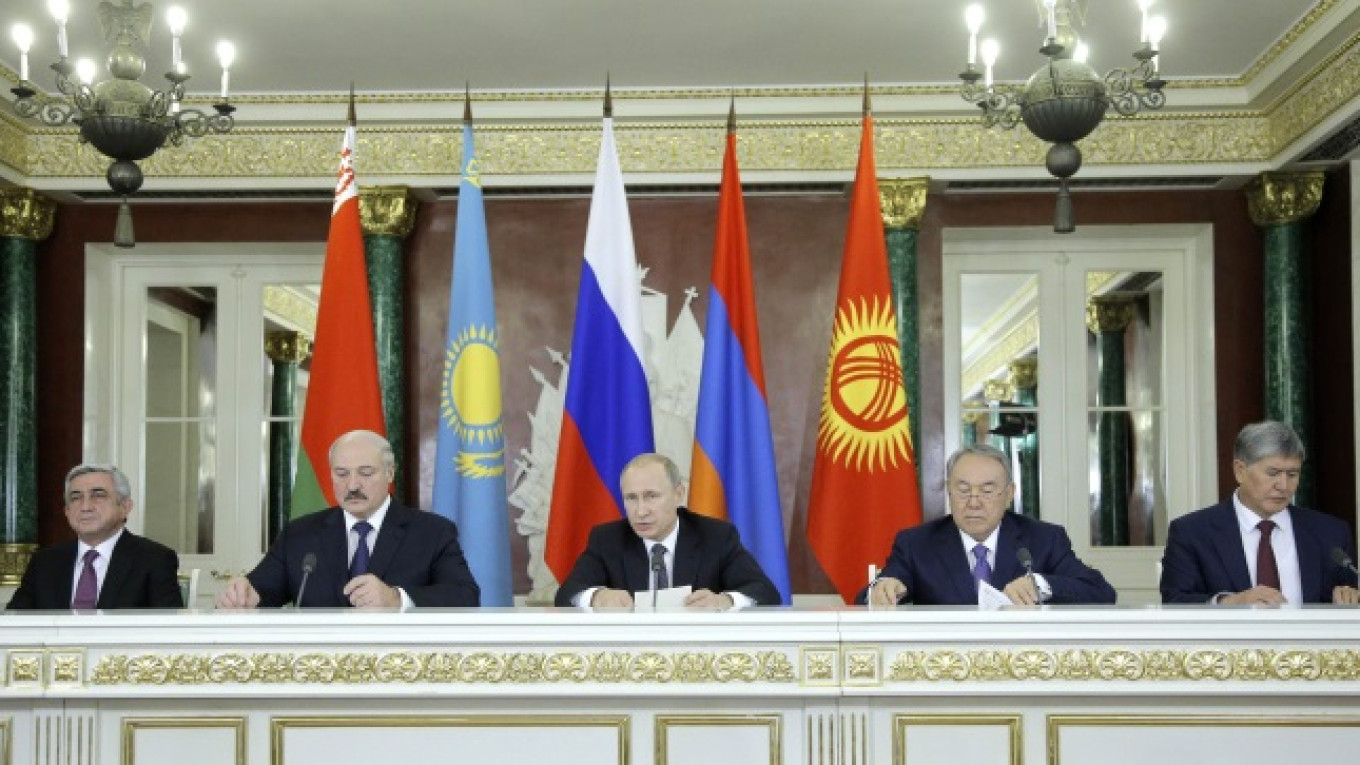Armenia officially joined the Eurasian Economic Union (EEU) on Friday, banding together with Russia, Kazakhstan and Belarus in a Moscow-led project meant to counterbalance the European Union.
As part of a deal signed last October, Armenia will have limited representation in the organization until the end of 2015. Three Armenian members will share one vote in the union's governing body, the Eurasian Economic Commission, TASS news agency reported Friday.
Kyrgyzstan is also set to join the union on May 1.
Armenia's entry into the EEU means it will have to gradually transition to a unified tariff system with the union's other members, with 2022 set as the deadline for the full transition, TASS reported.
The country will have to negotiate with the World Trade Organization, of which it is a member, on its changing obligations in light of its new membership with the economic bloc of former Soviet republics.
The Armenian government had been set to clinch a free-trade deal with the EU until, following talks with Russian President Vladimir Putin, Armenian President Serzh Sargsyan in 2013 abruptly decided to switch to the Russian-led Customs Union, a precursor to the EEU.
Trade economist Alexander Knobel told The Moscow Times previously that Armenia turned away from European integration after Russia offered it the budget price of $170 to $180 per 1,000 cubic meters on its all-important natural gas imports.
The Armenian economy is heavily dependent on Russia, the country's largest foreign investor and trade partner as well as the source of vital remittances sent home to Armenia by migrant workers.
Armenia has also cultivated a close political relationship with Russia in order to secure itself against neighbors Turkey and Azerbaijan. Armenia and Azerbaijan have been entangled in a territorial dispute over the Nagorno-Karabakh region and surrounding districts for decades, with both Turkey and Azerbaijan erecting economic blockades against Armenia in response to its occupation of the area.
A Message from The Moscow Times:
Dear readers,
We are facing unprecedented challenges. Russia's Prosecutor General's Office has designated The Moscow Times as an "undesirable" organization, criminalizing our work and putting our staff at risk of prosecution. This follows our earlier unjust labeling as a "foreign agent."
These actions are direct attempts to silence independent journalism in Russia. The authorities claim our work "discredits the decisions of the Russian leadership." We see things differently: we strive to provide accurate, unbiased reporting on Russia.
We, the journalists of The Moscow Times, refuse to be silenced. But to continue our work, we need your help.
Your support, no matter how small, makes a world of difference. If you can, please support us monthly starting from just $2. It's quick to set up, and every contribution makes a significant impact.
By supporting The Moscow Times, you're defending open, independent journalism in the face of repression. Thank you for standing with us.
Remind me later.


